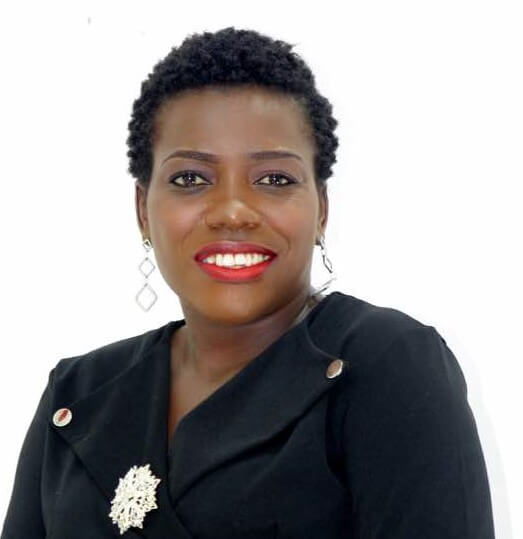Alumni profile - Lundi Anne Omam Ngo Bibaa
(Global Health Systems Theory and Policy MSc, 2017)
Be passionate about making a difference in Global Health. The wicked problems we see globally have solutions to them and consider yourself a part of what is needed to bring solutions to these problems.

Could you tell us about your journey to Queen Mary? Why did you choose to study Global Health Systems Theory and Policy?
Before coming to the UK for a Master's degree, I was working in a national NGO (Reach Out Cameroon) in my country, coordinating and leading the implementation of public health programs in hard-to-reach communities in Cameroon. I was keen on building my skills and knowledge on research and practices around the world on health improvement and the reduction of health disparities for disadvantaged populations. The Master's program in Global Health systems theory and policy offered by Queen Mary met this expectation and so I decided to study at the Queen Mary University of London.
What aspects of your degree did you enjoy and what were your most memorable moments at university?
Studying together with a diverse group of health professionals from different nationalities was what I enjoyed the most. I think Queen Mary embodies the meaning of the term “diversity”. I had the feeling of ‘being at home away from home’ as I met and connected with friends from different nationalities. Throughout the course, we supported each other with our presentations, and essays and studied together during exams.
I observed some gaps in the service delivery approaches used by the humanitarian community. I saw this as an opportunity to contribute to the evidence-based research on health care delivery in conflict-affected settings. Thus the reason behind the choice of my PhD research which focuses on health care delivery models for conflict-affected settings in Cameroon and Nigeria.
What are you doing now and how is your degree/time at the Queen Mary relevant to this job?
Currently, I am doing a PhD in Public Health and Primary Care at the University of Cambridge. My Master's degree from Queen Mary did not only give me a competitive advantage for my admission to the University of Cambridge but also prepared me to see the need to contribute to the evidence-based research needed to inform Health Policy and Practice for disadvantaged communities that I serve and design programs for.
Every time I see communities smile from the services which are brought to them, it motivates me to do even better. They are my biggest influence.
What made you choose the field you’re working in right now? What opportunities did you see?
The modules on health inequalities, social determinants of health and evidence-based research I took during my Master's degree. Queen Mary shaped my reflections on how I could possibly contribute towards impacting and improving health outcomes for the communities I serve. After I returned to my home country post my Master's degree from Queen Mary, I met a humanitarian crisis resulting from an armed conflict in the communities I used to work with before my study at Queen Mary. I had to transition from a development-oriented programs person to working in a humanitarian context. While coordinating humanitarian programs, I observed the unavoidable differences in healthcare access for many displaced communities impacted by the conflict. This was coupled with the loss of human rights, limited means of communication, low socioeconomic status, increased insecurity for gunshots, frequent curfews, and burning down of villages causing populations to live in bushes. These determinants affected the way services were designed and delivered to affected communities. I observed some gaps in the service delivery approaches used by the humanitarian community. I saw this as an opportunity to contribute to the evidence-based research on health care delivery in conflict-affected settings. Thus the reason behind the choice of my PhD research which focuses on health care delivery models for conflict-affected settings in Cameroon and Nigeria.
Who has been your biggest influence and why?
My biggest influence has been the communities I served and led programs for. Every time I see communities smile from the services which are brought to them, it motivates me to do even better.
In your career to date, what achievements are you most proud of?
Some achievement that I am most proud of to date is being one of the first women to have led the first large scale humanitarian responses to internally displaced people residing in communities with very high levels of insecurity. The programs I led provided lifesaving assistance to hundreds of internally displaced persons. A few of the successes recorded in humanitarian programming are shared in the following papers on mobile clinics and humanitarian led community-based surveillance.
What are the open questions you would like to see addressed in your field?
I would like to see questions on the following being addressed
- How could approaches used to deliver health care in humanitarian settings be sustained?
- How cost-effective are the strategies used to provide health care in humanitarian settings?
- How can humanitarian organisations be more accountable to the communities they serve?
What advice do you have for students interested in pursuing careers in Global Health Systems Theory and Policy?
I would say, be passionate about making a difference in Global Health. It’s a very complex, yet interesting field. The wicked problems we see globally have solutions to them and consider yourself a part of what is needed to bring solutions to these problems. Always reflect on the modules that marked you and make use of the learnings from these modules to positively contribute towards improving health outcomes for populations around the world.
- Find out more about studying Global Health Systems Theory and Policy MSc at Queen Mary.
- Join the Queen Mary Network.
If you would like to get in touch with Lundi-Anne or engage her in your work, please contact the Alumni Engagement team at alumni@qmul.ac.uk.